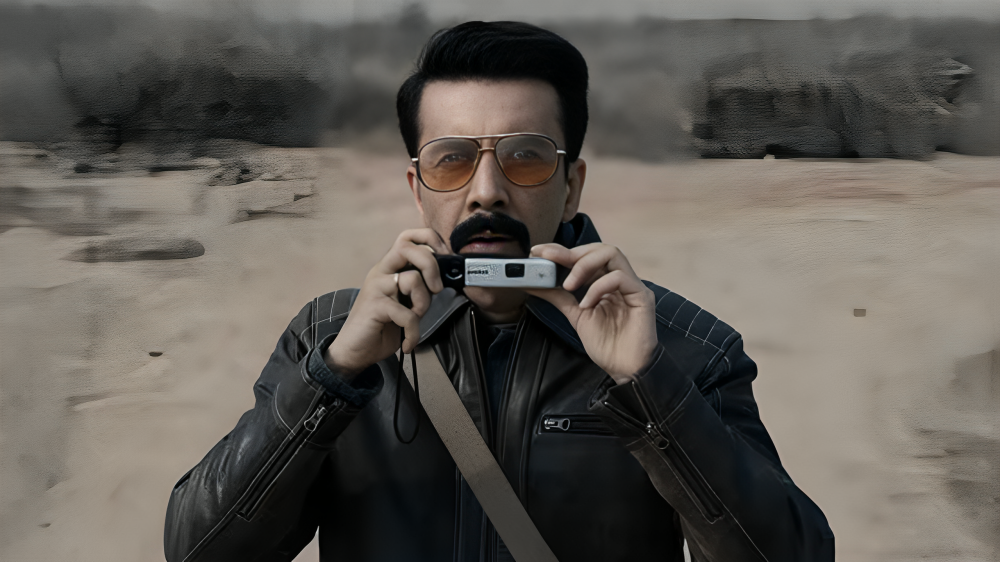If you’ve been craving an Indian spy thriller with real historical undertones, Salakaar might just tempt you to hit that “play” button. Streaming now on JioHotstar, the series dives deep into the murky world of espionage, political intrigue, and India-Pakistan’s nuclear race.
Starring Naveen Kasturia, Mouni Roy, Surya Sharma, and Mukesh Rishi, it blends fact with fiction, taking inspiration from actual nuclear espionage incidents. It’s ambitious, it’s intriguing, but… it’s also a little uneven. Let’s break it down.
The Story: Two Timelines, One Dangerous Secret
The plot jumps between 1978 and 2025, following covert missions that revolve around Pakistan’s secret nuclear project in Kahuta.
In the present day, we meet Colonel Ashfaq Ullah (Surya Sharma), a fierce anti-India figure, who gets his hands on a top-secret nuclear plant blueprint. After a tense handover scene in a cemetery, he promptly eliminates the courier — a dramatic opening that sets the tone.
Enter Mariam (Mouni Roy), who is posing as a tuition teacher but is actually R&AW agent Shristi Chaturvedi. Her mission? Get close to Ashfaq, photograph the blueprint using spy-camera glasses, and get out alive.
Meanwhile in India, R&AW notices a similar file in their archives — one only accessible by the Prime Minister and National Security Advisor Adhir Dayal (Purnendu Bhattacharya). Cue a flashback to 1978, when a younger Dayal (Naveen Kasturia) was sent to Islamabad to stop Pakistan from developing the bomb.
Performances: Solid Leads, Uneven Arcs
Naveen Kasturia shines as the young Dayal — calm, sharp, and determined. Surya Sharma brings menace and conviction to Ashfaq, while Mukesh Rishi is reliably impactful in a smaller but important role.

Mouni Roy plays the classic femme fatale, but her character’s arc doesn’t always land. While she looks the part, the writing often leaves her in distress rather than giving her the agency a spy of her calibre would need.
One standout detail? Dayal’s character is loosely based on India’s real-life National Security Advisor Ajit Doval, who famously lived undercover in Pakistan for years. This adds a layer of authenticity to Kasturia’s portrayal.
Hits and Misses: Where Salakaar Works and Where It Stumbles
On the plus side, the nuclear espionage premise is instantly gripping. The cat-and-mouse tension between spies and agents from both sides keeps you invested. The period detailing of the 70s is excellent — from embassy offices to sly cricket references (yes, there’s a Kapil Dev visa mention before his 1978 debut in Pakistan).
However, logic gaps do creep in. For example, after a massive explosion at the nuclear plant, Dayal escapes with barely a scratch. Security around Kahuta is shown as tight at entry but oddly lax later. Geography also takes a hit — Kahuta’s lush foothills are depicted as barren, looking more like Balochistan.
The present-day mission in 2025 feels undercooked compared to the richer 1978 storyline. While we understand Dayal’s goals in the past, the current plot meanders, focusing mainly on rescuing Mariam and uncovering Ashfaq’s obsession.
Worth a Weekend Binge, With Adjusted Expectations
Directed by Faruk Kabir (Khuda Haafiz), Salakaar has all the ingredients of a top-tier spy drama — high stakes, secrets, political undercurrents — but the recipe isn’t perfectly balanced.
With just five episodes of about 30 minutes each, it’s a quick binge. If you can forgive the logical lapses and occasional pacing issues, you’ll still find plenty to enjoy here. Just don’t expect it to be The Family Man or Fauda. This is more of an old-school desi spy thriller with a dash of modern style.























